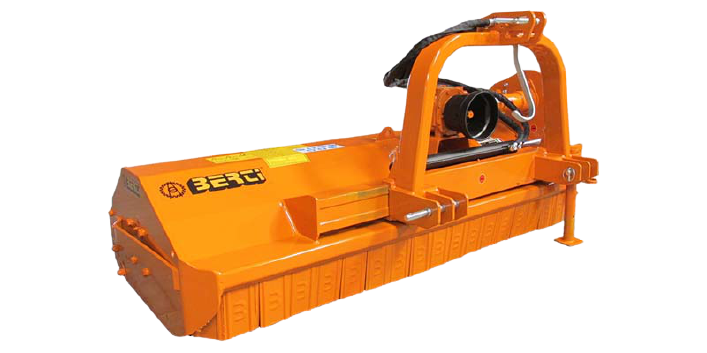Mowing is a basic yet effective farm maintenance practice that has numerous advantages in the management of orchards and vineyards. More specifically, mowing is a one-of-a-kind farm activity that improves soil quality, minimises pest occurrence, and boosts crop growth.
Farmers that mow their fields on a
regular basis are on their way to having a well-kept orchard. The sole downside
of mowing is that it necessitates frequent maintenance, especially when the
weather conditions are conducive to rapid grass growth. Because of the high
frequency of required mowing, there is a greater risk of tree damage.
In this respect, farmers must manage
mowing carefully to avoid any potential damage to the trees. However, farmers
who possess suitable mowing machinery have no excuse for grass-overgrown
orchards. Farmers must carefully regulate mowing in this regard to avoid any
potential tree harm and this can be done using proper machinery.
Mowing Machinery
Farmers employ mowers or mulchers to
keep their orchards tidy and well-maintained and to control weeds. The key
difference between mowing and mulching machinery depends on the basis of grass
cutting.
Mowers are made to cut the grass while
leaving the grass clippings on the orchard floor. Mulchers, on the other hand,
are designed to trim the grass and turn over the remains, cutting them into
tiny particles. As a result, mulchers apply grass mulch layers evenly,
considerably increasing soil organic matter.
There is one significant difference
between a mulcher and a mower, and that is the construction. The mulcher's
construction is closed (via a removable or openable cover, depending on the
model or maker) to prevent grass from flying out onto the orchard floor.
Instead, the grass is cut up several times and spread uniformly throughout the
orchard floor as a mulch layer. As a result, farmers choose to use mulchers
rather than conventional topping mower.
Which type of Machine
You Should Use For Orchard Floor Maintenance
Here are two types of machinery that
you can use:
Flail mulcher
A horizontally mounted spinning drum (sometimes called tube, rotor, or axle) with the "flails" (knives or blades) attached to the drum is the main component of the flail mulcher. The centrifugal force turns the flails at a rapid speed as the drum rotates. Vertically, the flails cut the grass. The flails bounce off the rocks or other stationary objects since they are not fastened to the drum in a stable place. The closed architecture allows the grass leftovers to be shredded and turned into a grass mulch layer. A three-point linkage system is used to connect flail mulchers to tractors. They come in a variety of sizes that are ideal for a variety of crops.
2. Rotary mower/mulcher
Understanding the differences between
rotary mowers and mulchers is important. Rotary mulchers have a closed design
that allows grass clippings to be chopped. Rotary mowers, on the other hand,
have an open design that allows grass to fly away quickly. Mulchers are
commonly used by orchard and vineyard farmers to keep the grass maintained.

No comments:
Post a Comment